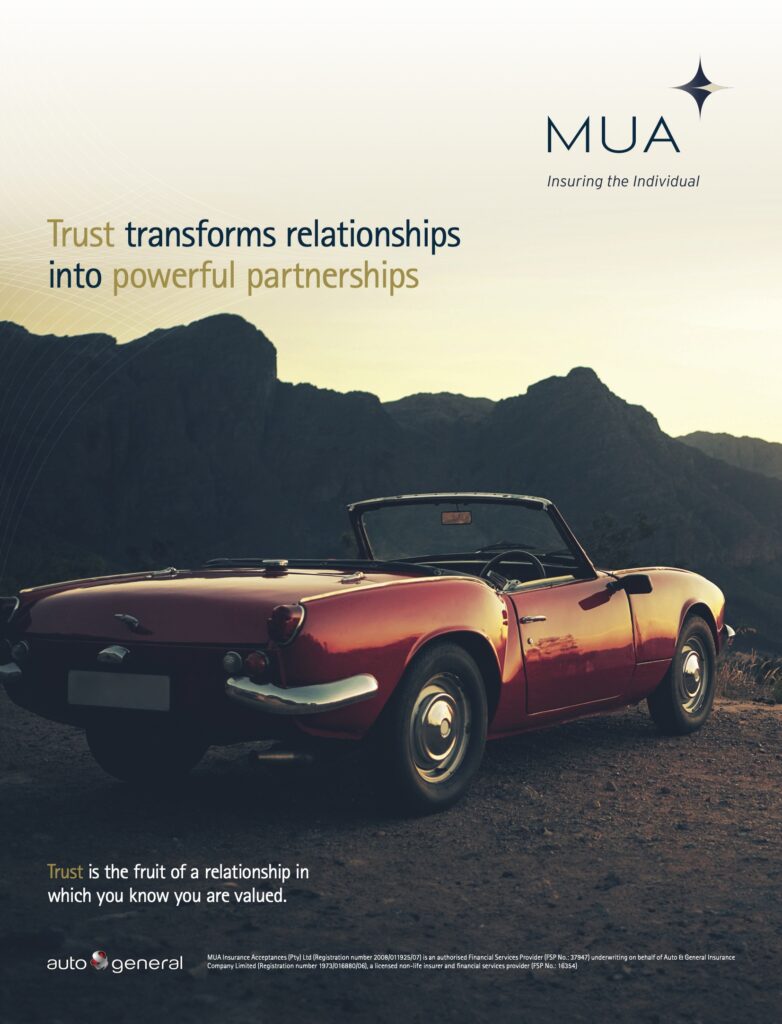By: Paul March, Director, Horizon
Marine insurance is a truly global class of business, and the latest trends are always interesting. Despite living at the bottom of Africa the South African marine insurance market is right there when it comes to keeping up with the latest trends.

More and more attention, aka time and money, is being spent on digitisation and the adoption of technology within the marine cargo space. Insurers are using digital platforms to streamline internal processes, enhance the accuracy of their underwriting information and improve their claims settling experience.
The shipping lines and the freight forwarding industry are actively looking into blockchain technology to reduce fraud and improve transparency in what has historically been a paper driven business.
The talk of the moment is climate change and its impact. However, the knee jerk reaction by some insurers to refuse to insure steam coal has slightly backfired as the Ukraine/Russian war has seen coal fired power stations in Europe being taken out of mothballs creating a real requirement for cover for this supposed villain of global warming.
There’s a growing emphasis on sustainability and ESG. Insurers are rapidly exploring ways to promote sustainability in the marine cargo sector and assess the environmental impact of shipping activities.
Regulatory changes, such as ship engine sulphur emissions and related environmental standards, are already in place. And, with more to come, the hull insurance market is constantly adapting policies to stay relevant.
Political and economic shifts, such as war (Israel & Palestine / Russia & Ukraine) and trade agreements (US & SA) are influencing cargo flows. Insurers are actively monitoring these dynamics to adjust their underwriting strategies.
Marine cargo insurance covers a wide range of risks associated with the transportation of goods and the specific coverage varies depending on the client’s needs and the nature of their cargo. However, some of the most prominent covers available include:
All-Risk Cover, the Institute Cargo Clauses, is the most comprehensive cover available that protects against most types of physical loss or damage to cargo while in on the move. It typically includes coverage for perils like theft, fire, collision, sinking, and accident damage. Of course, there are some exclusions to the cover available, the insufficiency of packing being among the more well-known.
Perishable products can be covered on an All-Risk basis. There are a specific set of clauses designed to cover the risks associated with the transport of fruit, known as the Institute Frozen Food Clauses.

TRUST TRANSFORMS RELATIONSHIPS INTO POWERFUL PARTNERSHIPS
Trust is the fruit of a relationship in which you know you are valued.
MUA Insurance Acceptances (Pty) Ltd (Registration number 2008/011925/07) is an authorised Financial Services Provider (FSP No.: 37947) underwriting on behalf of Auto & General Insurance Company Limited (Registration number 1973/016880/06), a licensed non-life insurer and financial services provider (FSP No.: 16354)
The General Average was first codified in 1890 and is still used today. In cases of emergency, where a ship’s cargo or equipment is “sacrificed to save the adventure”, all parties with cargo on board may be required to share in the cost of the sacrifice.
War and Strikes Risks cover is often purchased separately due to the elevated risks associated with such events. Cover was historically subject to a thirty day notice but, as an indicator of the world we now live in, that notice period has been reduced to forty-eight hours.
Delay In Start-Up, or Advanced Loss Of Profit Insurance, covers losses incurred due to delays in the start-up of a project or a business resulting from damage to cargo during transit. It is commonly used in industries with time-sensitive projects. It is vitally important for clients, who know their risk the best, to work closely with their broker and insurer to determine the cover that best suits their needs. The choice of coverage depends on factors such as the type of cargo, its value, the route, and the indemnity period required.
I cannot stress enough that you pay for what you get. The price might be the understanding the underwriter has of your risk and exposure, or just as important, the skill the claims team brings to the party when the proverbial hits the fan.
E-commerce and Online Retail has taken some time to arrive in the marine insurance space. Pleasingly there’s more and more available. Global shipping trends have created opportunities for insurers to cater for consumer’s needs.
But where can brokers find opportunities to put some marine cargo insurance on the books? The simple answer is everywhere! Almost every commercial client will be doing some sort of importing or exporting.
Many brokers see marine insurance as a mystical dark art and, for that reason, stay far away from it but insurance is all about people and the honesty, integrity and expertise that lies behind those relationships. And that’s where a broker can prove their worth, obviously with the assistance of a well-informed marine insurer in the background.
When you use a professional underwriting agency, such as Horizon Underwriting Managers (Horizon), I guarantee you’ll receive a different experience. You’ll talk to an underwriter who understands your risk and is prepared to explain the cover offered.
And when or if the claim happens, we’ll respond quickly and knowledgably so your claim is settled with the minimum of frustration.
Following the successful merger of two long established agencies Horizon started trading in 2012, with offices in Johannesburg, Durban and Cape Town, employing 30 people across the branches. Horizon is the largest marine agency and one of the top marine insurers in South Africa.
Talk to Horizon I promise you won’t regret it.
Find and follow us on LinkedIn too!

